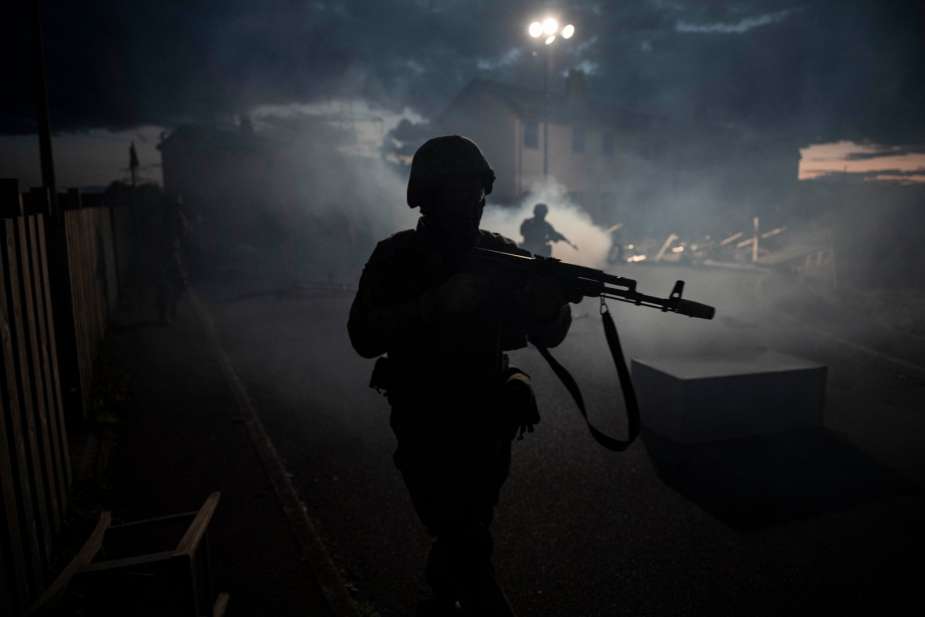As reported by Ukrinform on October 5, 2023, Canadian military trainers have been actively engaged in imparting tactical urban warfare skills to Ukrainian defenders as part of Operation UNIFIER. The 3rd Battalion of the Royal Canadian Regiment, representing the Canadian Armed Forces, demonstrated their proficiency in tactical urban warfare during Rotation 16. These training exercises took place in the southeast of England, offering Ukrainian recruits valuable insights and expertise. Operation UNIFIER, an initiative by the Canadian Armed Forces, has been dedicated to supporting Ukraine's Security Forces.
Follow Army Recognition on Google News at this link

Ukrainian soldiers during a final exercise during Operation UNIFIER in 2023, to confirm all aspects of the training they received from the Canadian Armed Forces (Picture source: Canadian MoD)
Since its inception in 2015, Operation UNIFIER has seen Canadian service members train more than 37,000 Ukrainian soldiers in modern combat techniques. However, the recent escalation of the conflict with Russia necessitated the temporary withdrawal of Canadian instructors from Ukraine. Nonetheless, training efforts were promptly resumed in alternative locations, including Great Britain, Poland, and Latvia.
The United Kingdom has also played a significant role in enhancing the capabilities of the Ukrainian armed forces. British Commandos conducted an extensive six-month training program for approximately 1,000 Ukrainian Marines, marking the first instance of cooperation in this domain between the UK and Ukraine. Instructors from various units, including 42 Commando, 47 Commando Raiding Group, 24 Commando Engineers, and Royal Artillery Gunners from 29 Commando, played pivotal roles in delivering the training. This collaborative endeavor was backed by a coalition of countries, including Australia, Canada, Denmark, Finland, Lithuania, the Netherlands, New Zealand, Norway, and Sweden.
The primary focus of the training program was to enhance the proficiency of Ukrainian forces in small-boat amphibious operations, particularly beach raids utilizing inflatable boats. The Royal Marines and Army Commandos spearheaded the training, equipping Ukrainian marines with the skills required to plan and execute raids in various conditions, including both daylight and nighttime scenarios.
The comprehensive curriculum encompassed a wide range of skills, with nearly 900 Ukrainian marines successfully completing the course. Training modules covered the use of advanced equipment, including Next Generation Light Anti-Tank Weapons (NLAW) and Stinger anti-aircraft missiles. Participants were also provided with instruction in operational techniques related to mortars and reconnaissance drones, as well as tactics for dealing with obstacles like anti-vehicle fortifications.
One noteworthy aspect of the training program was its inclusive approach, welcoming both civilian volunteers without prior military experience and individuals transitioning from other sectors within the Armed Forces of Ukraine. This approach aimed to diversify and enhance Ukraine's military expertise. Beyond individual skill development, the training initiative sought to foster unit cohesion and effective planning within realistic operational scenarios. This holistic approach is anticipated to not only strengthen Ukraine's autonomous marine force but also establish an international training framework for marines, emphasizing the importance of international cooperation in enhancing military capabilities.
















